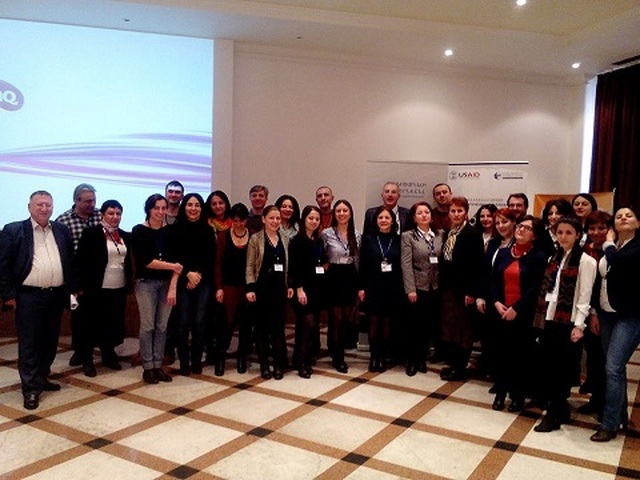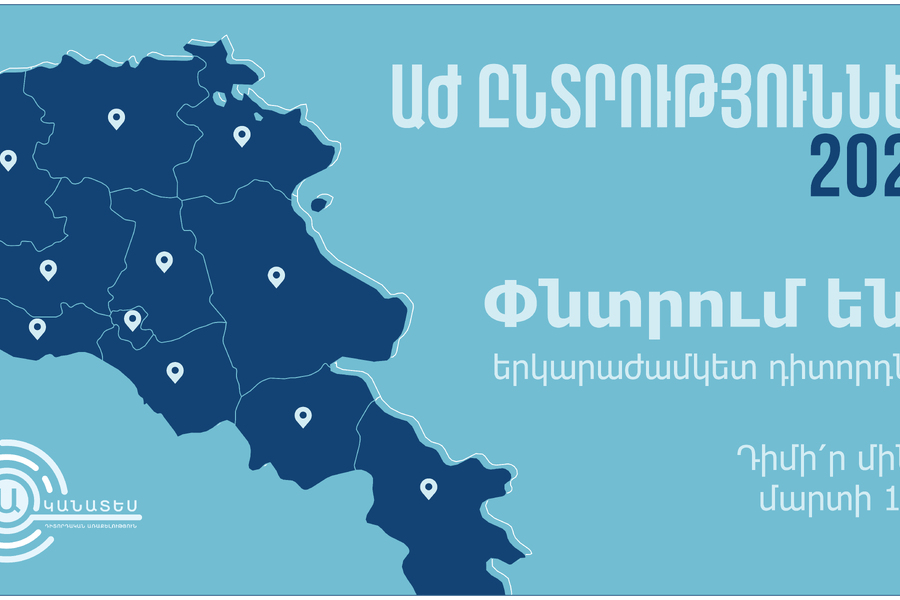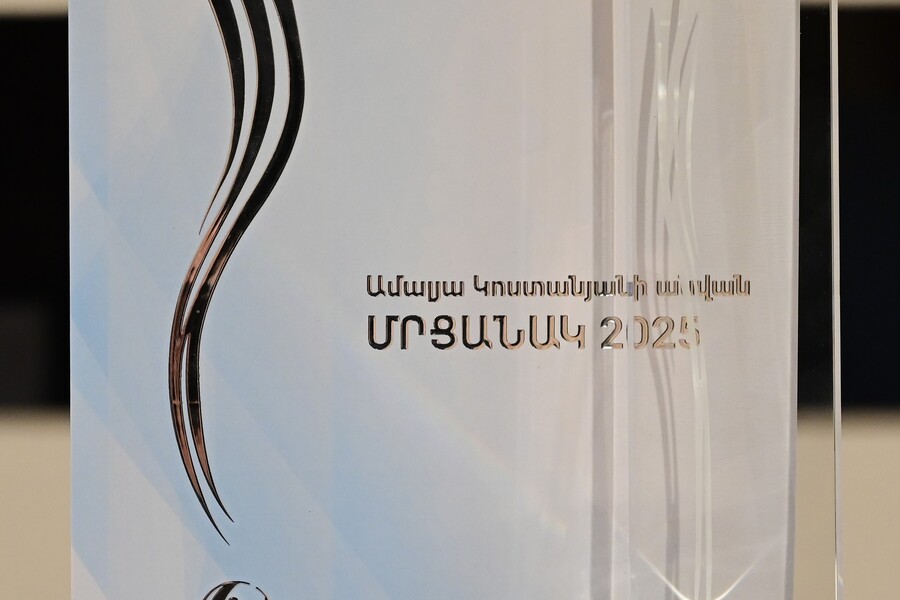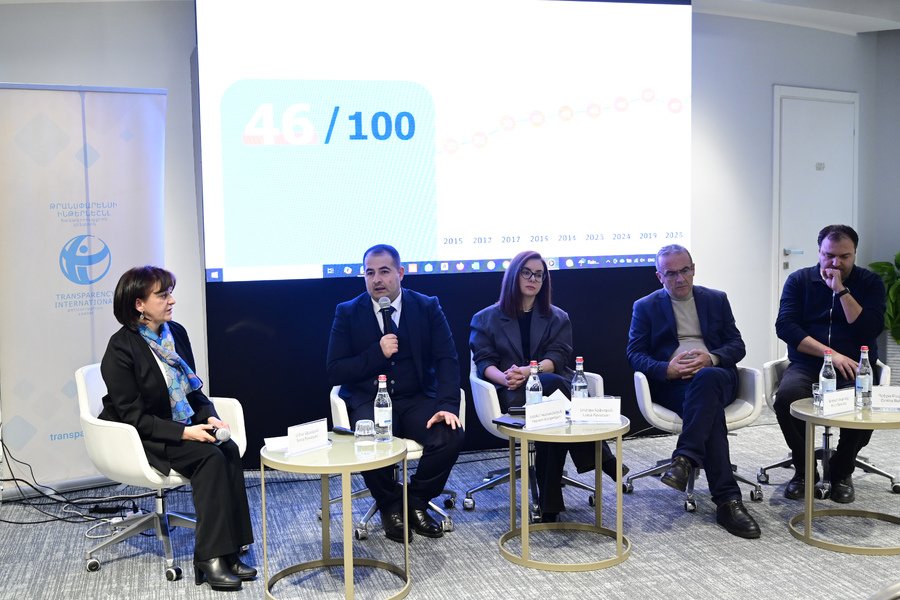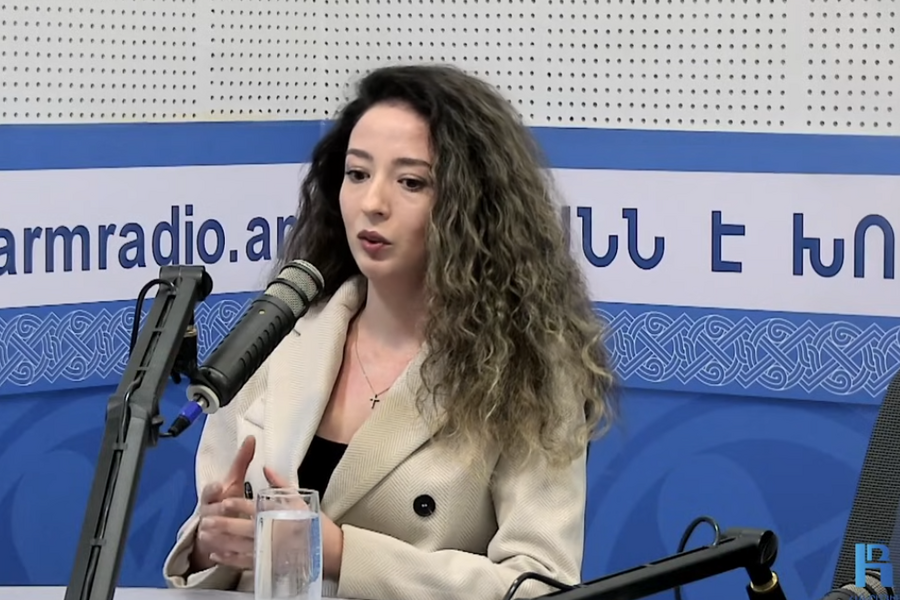TIAC's strategic planning meeting with stakeholders
Transparency International Anticorruption Center NGO (TIAC) has launched its 2016-2020 strategic planning process. On February 12, 2016 the first working group meeting was held involving all the stakeholders, with whom TIAC has intensively collaborated during the recent years. The results of TIAC’s 2013-2015 Strategy were summed up during the meeting and the strategic priorities and goals for the upcoming years were outlined for the development of 2016-2020 strategy. The meeting brought together representatives of state structures, international organizations, civil society, partners, TIAC members, journalists.
Haykak Arshamyan, TIAC Board Chair welcomed the participants with opening remarks. He also presided over the entire event. Sona Ayvazyan, TIAC Deputy Director presented the organization’s 2013-2015 strategy evaluation methodology.
TIAC’s 2013-2015 strategy results were summed up in its three priority areas – governance system, elections and public resources.
Varuzhan Hoktanyan, Executive Director of Transparency International Anticorruption Center presented the results in the area of governance system. Accordingly, the results that caused policy and legislative change were as follows:
- The Concept for the fight against corruption in public administration system was adopted
- Anticorruption Council and Expert Commission were established
- Armenia’s Anticorruption Strategy was adopted
- Information that previously was considered to be trade secret became transparent
- By government decision, the income and asset declarations of high-ranking officials become more transparent
- By draft law, sanctions are set up for not submitting income and asset declarations or for submitting false information by high-ranking officials
- References are made from the shadow report on Armenia provided by TIAC in the OECD ACN “Anti-corruption Reforms in Armenia” Third Round Monitoring of the Istanbul Anti-Corruption Action Plan
- One out of 8 commitments proposed by TIAC is included in the Open Government Partnership (OGP) First Action Plan (2012-2014), and 4 out of 11 commitments are included in the Second Action Plan (2014-2016) of the Republic of Armenia
- The alternative (shadow) report developed by TIAC was involved as an official document in the fifth session of the Conference of the States Parties to the UNCAC
- Nearly 70% of recommendations submitted by TIAC are included in draft Law on Public Organizations
The result that caused behavior change is
- Two out of 12 participants in trainings organized by TIAC for Young Leaders’ School applied for TIAC membership
Heriknaz Tigranyan, Legal Adviser of Transparency International Anticorruption Center presented the results in the area of elections. The results that caused policy and legislative change are as follows:
- The activities of Precinct Electoral Commission and Central Electoral Commission were improved
- The results in one (No. 17/5 precinct in Artashat) were annulled during 2013 presidential election
- International structures urged to publicize the voter lists
The results that caused behavior change are:
- TIAC research on campaign finance was used by a political party to apply to the Constitutional Court of Armenia
- New observers were involved and mobilized
Sona Ayvazyan, Deputy Director of TIAC presented the results in the area of public resources. The results that caused policy and legislative change are as follows:
- The Council of the Chamber of Control of Armenia approved the “Guide on Public Procurement Audit”
- The meeting of public procurement complaint commission was online broadcasted
- The government launched Extractive Industries Transparency Initiative (EITI) membership process
- RA Law on Environmental Impact Assessment and Expertise was developed, adopted and improved
- RA Law on the Protection and Use of Historical and Cultural Immovable Monuments and Historical Environment was amended
Meanwhile lessons learned from each priority areas were discussed and TIAC’s 2013-2015 results were evaluated. The participants in the event evaluated the work done by TIAC in the mentioned three areas. The evaluation was made by a tool developed by Transparency International – Impact Matrix, which enables to evaluate policy and legislative change, raising awareness and behavior change. The participants in the meeting expressed their opinion on TIAC regarding the following issues
- What should be continued to be done in this area?
- What should be discontinued?
- What new thing should be further developed?
The priorities and goals of TIAC for the forthcoming years were set up in World café format. The stakeholders who were present in the meeting answered the following questions.
- What are the greatest strengths of TIAC and what are the main areas in your opinion that need to be improved?
- What according to you should become priority areas for TIAC in 2016-2020? /Which is the main change (in legislation/public policy and behavior change) that TIAC should achieve till 2020?
- As a stakeholder mention what are the tools and services/ results that are applicable and useful to you?
- How can behavior toward corruption be changed in society? (break tolerance of corruption)
- How can TIAC activity be more recognizable, perceptible and acceptable for society and various groups?
Thoughts were wrapped up at the end of the meeting. The feedback and recommendations will help to develop TIAC’s 2020 strategy as a result of brainstorming.
The event was implemented within the framework of "Engaged Citizenry for Responsible Governance" project funded by USAID. The strategic planning process was supported by the consultants of Grow Edutainment organization.


